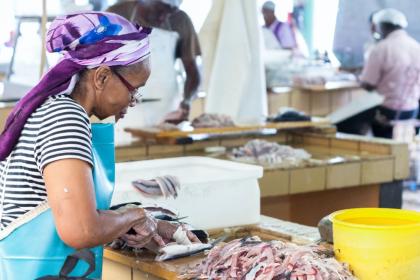The COVID-19 pandemic has hit the Barbadian economy heavily in 2020 and triggered multifaceted shocks with respect of its job market, external debt, social development, and the progress to 2030 Agenda, etc.
To achieve the sustained recovery out of the shock and get the 2030 Agenda back on track, it's essential to further diversify Barbadian economy and enhance its resilience.
The Project aims to assist Barbados in formulating targeted policy strategies through policy research and recommendations, capacity building and harnessing the opportunities from economic cooperation and integration between Barbados and other developing countries.
Objective:
To assist Barbados to formulate targeted policy strategies and harness South-South Cooperation opportunities to achieve sustained recovery through promoting economic diversification and resilience.
Activities:
-
Economic policy research and analysis
-
Capacity building seminars
-
Events in promoting South-South Economic Cooperation and Integration
Intended Outcomes:
-
Effective Policy strategies in promoting economic diversification and resilience
-
Strengthened policy research and formulation capabilities
-
Enhanced economic cooperation between Barbados and other developing countries
Link to the SDGs:
8.1, 8.2, 8.3, 9.3, 9.a, 9.b, 10.b, 17.6
Monitoring and Evaluation:
Self-evaluation supported by UNCTAD Evaluation and Monitoring Unit
South-South Cooperation for a better future
The world economy is in uncharted waters. Countries are facing the combined effects of the COVID-19 pandemic, a global food and energy crisis, and the climate emergency.
Drought, fires and floods, weak post-pandemic economic growth and high inflation are creating even greater challenges for vulnerable countries of the Global South.
This video explores why South-South cooperation, which offers solutions through solidarity, is key to helping developing countries build collective self-resilience and promote more sustainable and equitable economic growth.
South-South cooperation: Solutions in solidarity for global challenges
South-South cooperation, which offers “solutions in solidarity”, is key to helping developing countries build collective self-resilience and achieve the UN’s Sustainable Development Goals.
India showing Zambia how to convert cotton by-products into clean energy and jobs, Colombia sharing its strategies to reduce hunger with Mesoamerican countries, China working with Uganda to improve the resilience and livelihoods of farmers – these are just a few examples of South-South cooperation.


